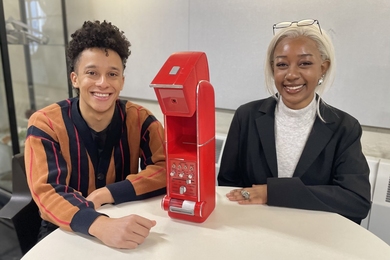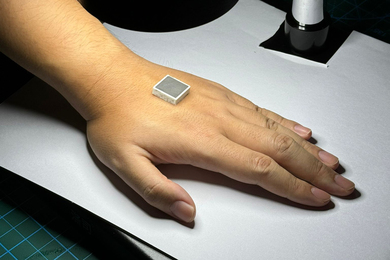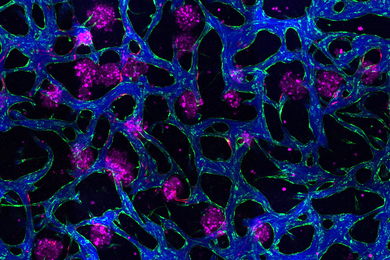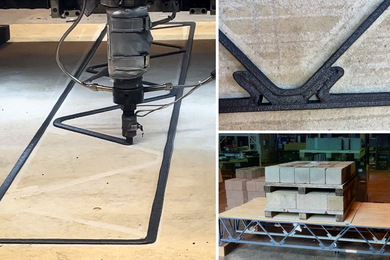Miklos Porkolab, internationally recognized for his experimental and theoretical research in plasma physics, has been appointed director of MIT's Plasma Fusion Center (PFC), where he has been associate director since 1991.
Dr. Porkolab, a professor in the Department of Physics, has led several pioneering experiments in radio-frequency heating and noninductive current drive on both the Versator II and the Alcator C tokamaks. In 1984 he and his co-workers shared the American Physical Society's Excellence in Plasma Research Award for the first conclusive experimental demonstration of noninductive current drive by radio-frequency waves in a tokamak plasma.
Since 1986 he has led the Alcator C-Mod radio-frequency heating team in the design and implementation of the 4 MW ion cyclotron resonance heating system which recently produced plasma temperatures in excess of 50 million degrees centigrade.
The appointment was announced by Professor J. David Litster, MIT's vice president and dean for research. Professor Porkolab succeeds Ronald R. Parker, who has been on leave serving as deputy director of the International Thermonuclear Experimental Reactor (ITER) and head of the ITER co-center in Garching, Germany. Dr. Parker will continue in the ITER role.
Professor Porkolab was recommended as the next PFC director following a national search carried out by a committee chaired by Professor Kenneth A. Smith.
Professor Litster thanked the search committee for its work and said, "The US fusion energy program may be in for some difficult times. I am pleased to have the steady hand of Miklos Porkolab at the helm of the PFC."
Professor Litster also thanked Dieter J. Sigmar, deputy director, and D. Bruce Montgomery, associate director, for "their interim stewardship of the Center."
The PFC, one of the world's leading university laboratories involved in the science and engineering of magnetic-confinement fusion and plasma research, is the largest laboratory on the MIT campus. About 40 percent of its work is associated with the Alcator C-Mod tokamak experiment, and 40 percent with research on superconducting magnets for future fusion devices. Other activities include fundamental plasma research, advanced microwave electronics and the applications of plasmas to environmental cleanup.
There are about 315 researchers associated with PFC activities, including 23 faculty and senior academic staff, 70 graduate students and 22 undergraduate students. Involved are faculty and students from the Departments of Electrical Engineering and Computer Science, Materials Science and Engineering, Mechanical Engineering, Nuclear Engineering and Physics. In addition, the PFC provides a work base for 97 research scientists and engineers, 43 visiting scientists, 33 technical support personnel and 30 administrative and support staff.
Professor Porkolab joined MIT in 1977 after 10 years at the Princeton Plasma Physics Laboratory, where he was senior scientist and lecturer in the Department of Astrophysical Sciences. He spent 1976 on sabbatical at the Max Planck Institute fur Plasmaphysik in Garching under the auspices of the Humboldt Foundation as a winner of the US Senior Scientist Award.
In 1991 he became editor of the Plasma Physics and Fluid Dynamics subsection of Physics Letters A.
He is a fellow of the American Physical Society and the newly elected vice chairman of the University Fusion Association. He is also the US delegate for plasma physics to the International Union of Pure and Applied Physics (IUPAP).
A version of this article appeared in MIT Tech Talk on March 15, 1995.





